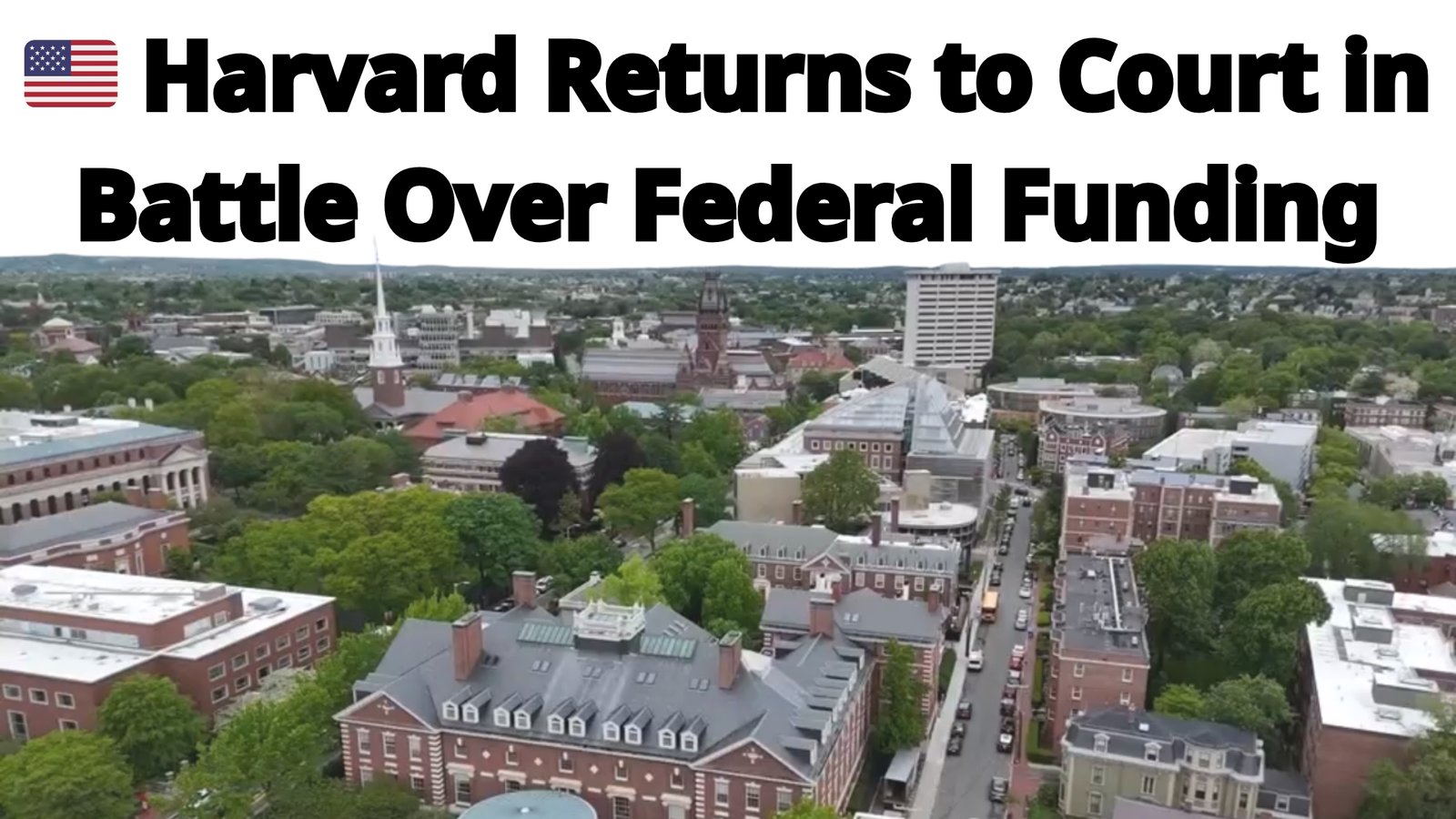🇺🇸Harvard University returns to court Monday in a crucial hearing in its legal battle with the administration of former President Donald Trump, a case that threatens more than $2 billion in federal research funding frozen last spring.

Federal Judge Allison Burroughs is expected to hear arguments from Harvard and Department of Justice lawyers, who are requesting that the university declare the freeze unlawful. This case has become emblematic of a major struggle between academic freedom, federal funding, and the government’s right to interfere in university policies—with the White House believing that pressuring major universities like Harvard can be a political bargain.
What happened?
Harvard says the sudden freeze on funding threatens advanced medical, scientific, and technological research, and accuses the government of trying to “impose control over academic programs” through pressure and deprivation of funding.
Last April, the Trump administration announced that it would strip Harvard of $2.2 billion in federal grants and $60 million in contracts unless the university adopted new policies related to student conduct, admissions, combating anti-Semitism, and diversity and inclusion (DEI) programs.
The administration says its decision came after the university’s failure to address anti-Semitic incidents, particularly following the October 7, 2023, attacks carried out by Hamas against Israel, stressing that “the government’s current policy is not to fund any institution that does not take this issue seriously.”
Harvard’s position
For its part, Harvard says it has already begun updating its policies regarding campus protests, reviewing disciplinary procedures, and expanding anti-Semitism awareness programs. It also noted that the scientific research affected by the decision—such as cancer research, brain disorders like Parkinson’s, and dealing with biological threats—is completely unrelated to the issues at hand.
In an official correspondence, a Defense Department official warned that canceling a $12 million grant for biological threat research could pose an “immediate risk to national security.”
Direct intervention from Trump
In June, Trump indicated in a post on his social media platform that “negotiations are going well with Harvard” and that “an agreement may be announced soon.” However, negotiations subsequently stalled, and instead of resolving the issue, the administration escalated the situation by sending a formal investigation to the university, accusing it of “flagrant violations” of civil rights law and threatening to completely withdraw all federal funding if the policies were not changed immediately.
In a further step, the Department of Homeland Security sent formal subpoenas requesting documents and records related to Harvard’s compliance with immigration laws and the visiting student program.
Mutual signals… but not resolved

Despite the tension, Harvard has recently shown some resilience. A press report indicated that the websites of centers serving minority and LGBTQ students were shut down—a move welcomed by the Trump administration as a “goodwill gesture.”
Meanwhile, the administration was conducting similar negotiations with Columbia University , and the two sides were close to a multi-million dollar settlement agreement.
“We think we’re going to make a deal with Harvard… and with Columbia as well, ” Trump said on July 4. ”
They want to make a deal very much, and there’s no rush.”
But Harvard is now demanding a swift court ruling by September 3, 2025 , when the university begins filing formal papers that could lead to a complete shutdown of funding if no decision is made.









0 Comments